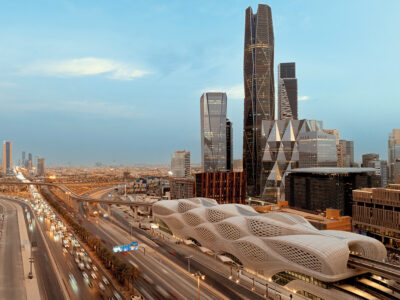By ITP
In pictures: Favela tourism during the Rio 2016 Olympics
With the Rio 2016 Olympic Games currently underway, for many ‘favela ‘ communities tourism has become a source of income in the lead up and during the games.


Tourists visit a souvenir shop during a tour of Rochina ‘favela’ community on August 17, 2016 in Rio de Janeiro, Brazil. With the Rio 2016 Olympic Games currently underway, for many ‘favela ‘ communities tourism has become a source of income in the lead up and during the games. The governments ‘pacification’ plan has seen some favela communities become safe enough for tour groups to run daily walking and jeep tours. Around 1.4 million residents, or approximately 22 percent of Rio’s population, reside in favelas which often lack proper sanitation, health care, education and security due to gang and police violence. (Chris McGrath/Getty Images)

A tour group walks through the alleys of Rochina ‘favela’ community on August 17, 2016 in Rio de Janeiro, Brazil. With the Rio 2016 Olympic Games currently underway, for many ‘favela ‘ communities tourism has become a source of income in the lead up and during the games. The governments ‘pacification’ plan has seen some favela communities become safe enough for tour groups to run daily walking and jeep tours. Around 1.4 million residents, or approximately 22 percent of Rio’s population, reside in favelas which often lack proper sanitation, health care, education and security due to gang and police violence. (Chris McGrath/Getty Images)

A tour guide points out the Rochina ‘favela’ during an open air jeep tour on August 17, 2016 in Rio de Janeiro, Brazil. With the Rio 2016 Olympic Games currently underway, for many ‘favela ‘ communities tourism has become a source of income in the lead up and during the games. The governments ‘pacification’ plan has seen some favela communities become safe enough for tour groups to run daily walking and jeep tours. Around 1.4 million residents, or approximately 22 percent of Rio’s population, reside in favelas which often lack proper sanitation, health care, education and security due to gang and police violence. (Chris McGrath/Getty Images)

Tourists take photographs of the view during a tour of Rochina ‘favela’ community on August 17, 2016 in Rio de Janeiro, Brazil. With the Rio 2016 Olympic Games currently underway, for many ‘favela ‘ communities tourism has become a source of income in the lead up and during the games. The governments ‘pacification’ plan has seen some favela communities become safe enough for tour groups to run daily walking and jeep tours. Around 1.4 million residents, or approximately 22 percent of Rio’s population, reside in favelas which often lack proper sanitation, health care, education and security due to gang and police violence. (Chris McGrath/Getty Images)

A tourist takes a photograph of the view during a tour of Rochina ‘favela’ community on August 17, 2016 in Rio de Janeiro, Brazil. With the Rio 2016 Olympic Games currently underway, for many ‘favela ‘ communities tourism has become a source of income in the lead up and during the games. The governments ‘pacification’ plan has seen some favela communities become safe enough for tour groups to run daily walking and jeep tours. Around 1.4 million residents, or approximately 22 percent of Rio’s population, reside in favelas which often lack proper sanitation, health care, education and security due to gang and police violence. (Chris McGrath/Getty Images)

The Rochina ‘favela’ community is seen during a tour on August 17, 2016 in Rio de Janeiro, Brazil. With the Rio 2016 Olympic Games currently underway, for many ‘favela ‘ communities tourism has become a source of income in the lead up and during the games. The governments ‘pacification’ plan has seen some favela communities become safe enough for tour groups to run daily walking and jeep tours. Around 1.4 million residents, or approximately 22 percent of Rio’s population, reside in favelas which often lack proper sanitation, health care, education and security due to gang and police violence. (Chris McGrath/Getty Images)

A tour group walks through the alleys of Rochina ‘favela’ community on August 17, 2016 in Rio de Janeiro, Brazil. With the Rio 2016 Olympic Games currently underway, for many ‘favela ‘ communities tourism has become a source of income in the lead up and during the games. The governments ‘pacification’ plan has seen some favela communities become safe enough for tour groups to run daily walking and jeep tours. Around 1.4 million residents, or approximately 22 percent of Rio’s population, reside in favelas which often lack proper sanitation, health care, education and security due to gang and police violence. (Chris McGrath/Getty Images)

Christ the Redemer statue is seen behind houses during a tour of the Rochina ‘favela’ community on August 17, 2016 in Rio de Janeiro, Brazil. With the Rio 2016 Olympic Games currently underway, for many ‘favela ‘ communities tourism has become a source of income in the lead up and during the games. The governments ‘pacification’ plan has seen some favela communities become safe enough for tour groups to run daily walking and jeep tours. Around 1.4 million residents, or approximately 22 percent of Rio’s population, reside in favelas which often lack proper sanitation, health care, education and security due to gang and police violence. (Chris McGrath/Getty Images)

Christ the Redemer statue is seen behind houses during a tour of the Rochina ‘favela’ community on August 17, 2016 in Rio de Janeiro, Brazil. With the Rio 2016 Olympic Games currently underway, for many ‘favela ‘ communities tourism has become a source of income in the lead up and during the games. The governments ‘pacification’ plan has seen some favela communities become safe enough for tour groups to run daily walking and jeep tours. Around 1.4 million residents, or approximately 22 percent of Rio’s population, reside in favelas which often lack proper sanitation, health care, education and security due to gang and police violence. (Chris McGrath/Getty Images)







